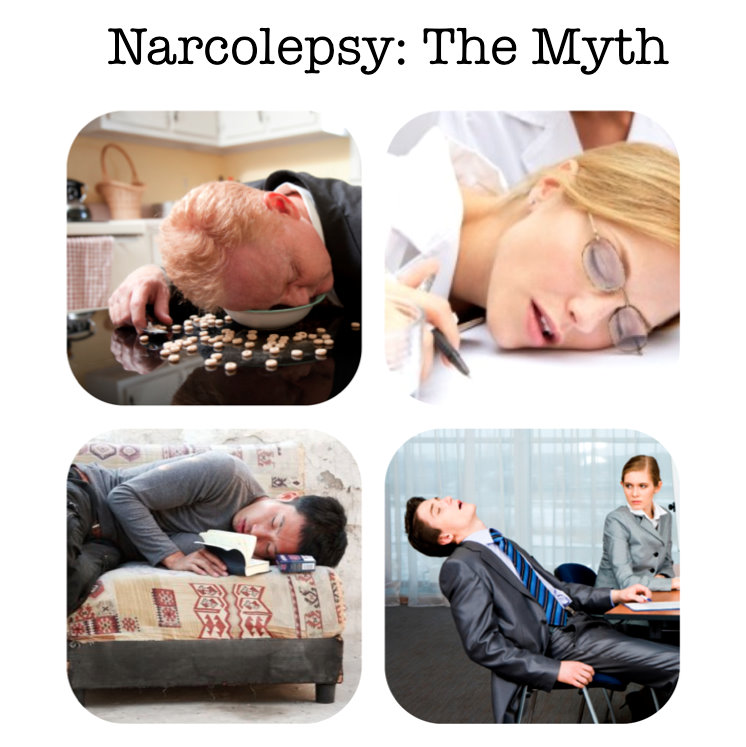Narcolepsy Isn’t Like the Movies: 16 Secret Signs of Daytime Sleepiness
 We all know the punch line of the narcolepsy joke – person falls asleep while standing or in the middle of the conversation. My daytime sleepiness doesn’t look like this. On the surface, it doesn’t look like much of anything.
We all know the punch line of the narcolepsy joke – person falls asleep while standing or in the middle of the conversation. My daytime sleepiness doesn’t look like this. On the surface, it doesn’t look like much of anything.Externally - my sleepiness is fairly undetectable. At it’s worst – friends have reported that I seemed “subdued,” “quiet,” “annoyed” or “dazed.” While I’m experiencing utter cacophony internally – I look “subdued.”
Daytime sleepiness manifests in other ways that we may not associate with sleepiness.
Narcolepsy’s sleepiness can appear as poor mood regulation such as irritability, mood instability and a less positive mood. It can also appear as behavioral issues like internalizing or externalizing (aggressiveness, hyperactivity and impulsivity). Likewise, daytime sleepiness can show as neurocognitive deficits – problems with attention, organization, self-monitoring, planning, memory and verbal creativity. Over time, daytime sleepiness can manifest as poor academic functioning, social impairments and family dysfunction.
16 secret signs of daytime sleepiness:
 Irritability
Irritability- Mood instability
- Less positive mood
- Internalization
- Aggressiveness
- Hyperactivity
- Impulsivity
- Attention deficits
- Organization issues
- Self-monitoring deficits
- Planning issues
- Memory problems
- Verbal creativity deficits
- Poor academic functioning
- Social impairments
- Family dysfunction
These not-so-obvious signs of sleepiness are helpful for diagnosis. They can also help people living with narcolepsy recognize daytime sleepiness in their everyday lives, because once diagnosed, treatment and lifestyle changes may improve sleepiness but are unlikely to erase it.
For me, irritability, aggressiveness and fidgeting are huge signs. Blaming narcolepsy doesn’t make this behavior “okay” or excusable, but acknowledgement is the first step toward change. Discussing with loved ones will allow us to work together to put moodiness to bed. Literally.
Of course, moodiness isn’t always sleepiness in disguise. Hunger manifests as moodiness often. And sometimes moodiness is plain ol’ moodiness!
In closing, sleepiness is more than nodding off in one’s soup bowl. Sleepiness is as invisible as insulin levels in diabetics, but without objective tools to measure sleepiness yet, we must do our best to subjectively recognize it. In a sense, sleepiness is like a soul – floating around undetected, only seen when it takes shape in a body (like in our mood, behavior or performance).


 because the infection seems to have almost cleared up, and his valve is
in good condition, his course of antibiotics finish on wednesday and on
wednesday he is seeing the cardiologist to sign him off, so he could be
home on Thursday, when he gets home he will have to take care for
several weeks because there is a risk of a secondary infection.
because the infection seems to have almost cleared up, and his valve is
in good condition, his course of antibiotics finish on wednesday and on
wednesday he is seeing the cardiologist to sign him off, so he could be
home on Thursday, when he gets home he will have to take care for
several weeks because there is a risk of a secondary infection.
